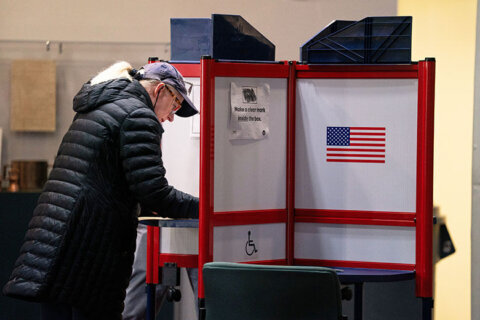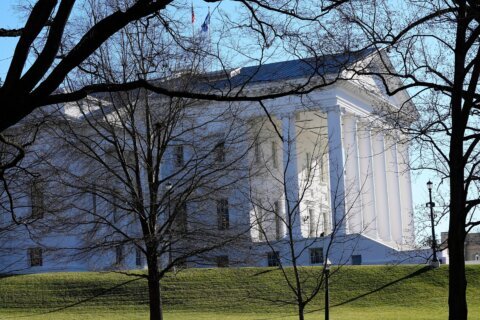It’s been a month since snowfall led to one of the worst traffic jam the D.C. region has ever seen, with people stuck in their cars on Interstate 95, in the cold, for hours.
A month later, Virginia Rep. Abigail Spanberger is pushing for more information about what the state has learned about where its response before and after the storm went wrong.
“For me this is about understanding what happened, so we can ensure it never happens again,” Spanberger told WTOP.
She said she will be sending a letter to Gov. Glenn Youngkin on Friday, requesting what after-action reports have revealed, and what steps are being taken to prevent a repeat of that horrendous commute.
“From a national security standpoint, that’s a major artery for the East Coast of the United States, so the idea that we’d be shut down for more than a day is unbelievable to me,” Spanberger said.
The I-95 incident happened before Youngkin took office. Spanberger said shortly after it happened, she had conversations with outgoing Northam administration officials about what took place, but she hasn’t spoken with members of the Youngkin team as of yet.
While she believes snowstorms seen since were not comparable to the Jan. 3 snow, Spanberger did say she’s encouraged some of the steps taken by the new administration ahead of the most recent storms.
“I was happy to see that they were fast to call for a state of emergency,” Spanberger said.
When reached for comment about the letter, Youngkin spokesperson Macaulay Porter said the governor is encouraged by the state’s response to the last three weather events.
In an email to WTOP, Porter said that Youngkin has issued three states of emergency to mitigate risks and ensure appropriate resources are available for the response teams ahead of the most recent storms.
“Our preparedness has been and continues to be a priority,” Porter said.
Spanberger said while the area may be nearing the end of snow events for this year, learning what is being done to prevent a similar event is important for the public to know; she plans to continue pushing for the details.
“This information is important in the long run; this information is important toward the future,” Spanberger said.
She said the snow, mixed with power outages created the “perfect storm” back on Jan. 3, but she said one thing learned is that the state needs to do a better job of communicating with the community during those types of incidents, even if there isn’t a lot to say.
“Telling people we don’t know everything, but this is what we do know, I think, is an important take-away,” Spanberger said.
Spanberger also believes the federal government can lend a hand to the state during these events, recalling that communities she represented looked to her that day to help communicate their needs to state leaders. She also said long-term infrastructure investments from federal spending legislation can also help improve bridges and roads in the region.








